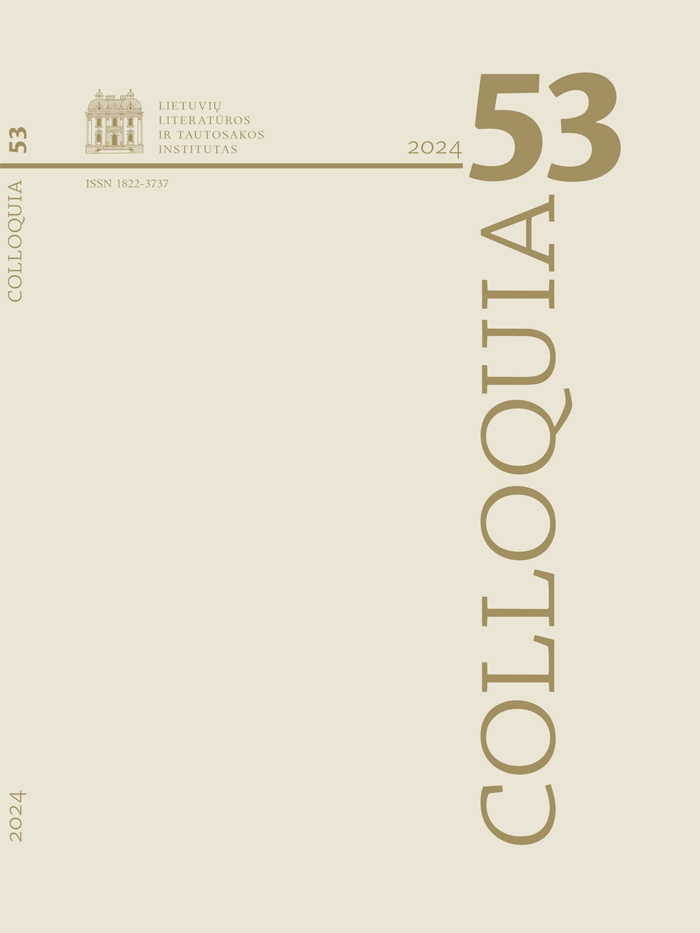The Biography of a Writer as an Argument in (De)Canonisation
Abstract
Despite the conception of the author’s death that was prevalent in the second half of the 20th century, the author’s biography always intervenes indirectly in the canonisation process, either a priori, as an additional argument for canonisation (e.g. participation in the national movement), or a posteriori, when the canonised author acquires, according to Yuri Lotman, the right to a biography. Moreover, biography becomes a significant factor in cases of revising and rewriting the canon, especially when it is related to political changes in society, e.g. in forming a Socialist Realist canon or the case of its radical deconstruction. The focus on biographical texts and authors’ biographies increases significantly in the 21st century, when literature itself tries to erase boundaries between fictional and biographical, and literary scholars discuss whether it is possible to separate the author from his or her work in the contexts of the historical memory and cancel culture. In this theoretical and historical framework, I discuss the role of the biography in the canonisation and decanonisation of a writer, and consider how these processes and the shift in the cultural paradigm influence interpretations of writers’ biographies.

This work is licensed under a Creative Commons Attribution 4.0 International License.
Downloads
Most read articles by the same author(s)
- Dalia Satkauskytė, Contemporary Literary Criticism: The Challenges of Democratisation , Colloquia: Vol. 51 (2023): Colloquia
- Justina Sinkevičiūtė, Virginijus Gasiliūnas, Dalia Satkauskytė, Irena Balčiūnienė, Manfredas Žvirgždas, Giedrė Kazlauskaitė, Šiandieniai Vinco Mykolaičio-Putino vertinimai , Colloquia: Vol. 51 (2023): Colloquia
- Dalia Satkauskytė, Sigitas Geda’s Anger and Other Demons , Colloquia: Vol. 50 (2022): Colloquia
- Dalia Satkauskytė, Independence’s Dependence, Dependence’s Independence , Colloquia: Vol. 54 (2024): Colloquia
- Dalia Satkauskytė, The Sociability of Janina Degutytė’s Poetry , Colloquia: Vol. 41 (2018)
- Dalia Satkauskytė, Impossible Poetics, or Aesopic Language in Relation to Semiotics and Literary Sociology , Colloquia: Vol. 36 (2016)
- Dalia Satkauskytė, A Personal History of Poetry , Colloquia: Vol. 40 (2018)
- Dalia Satkauskytė, Apie literatūrą be vietos, arba sėkmės siužetas , Colloquia: Vol. 32 (2014)
